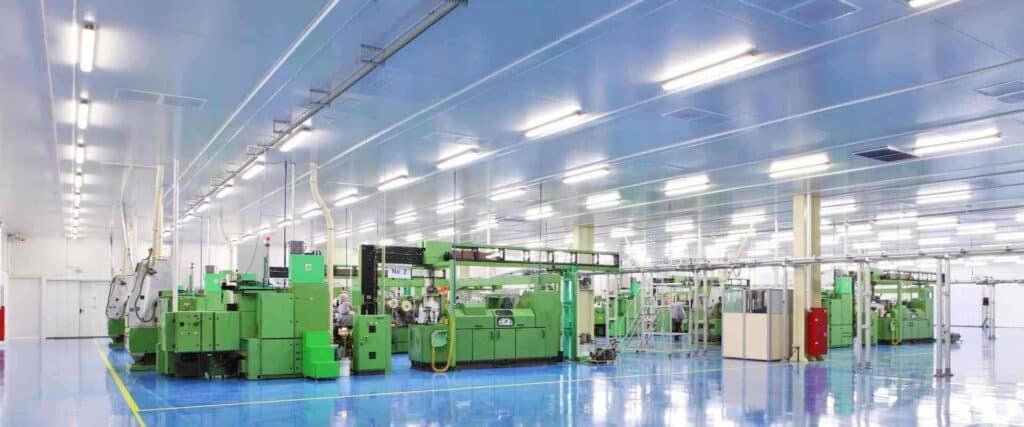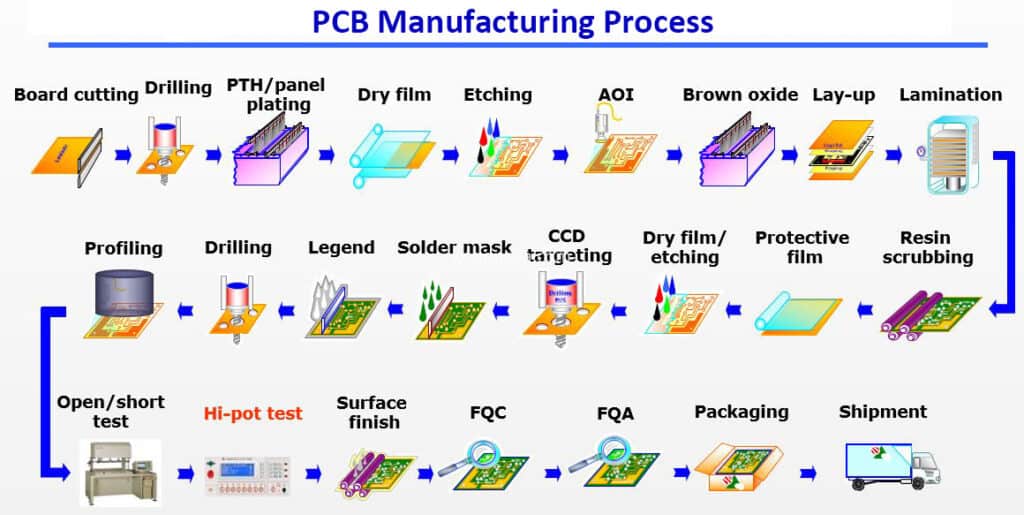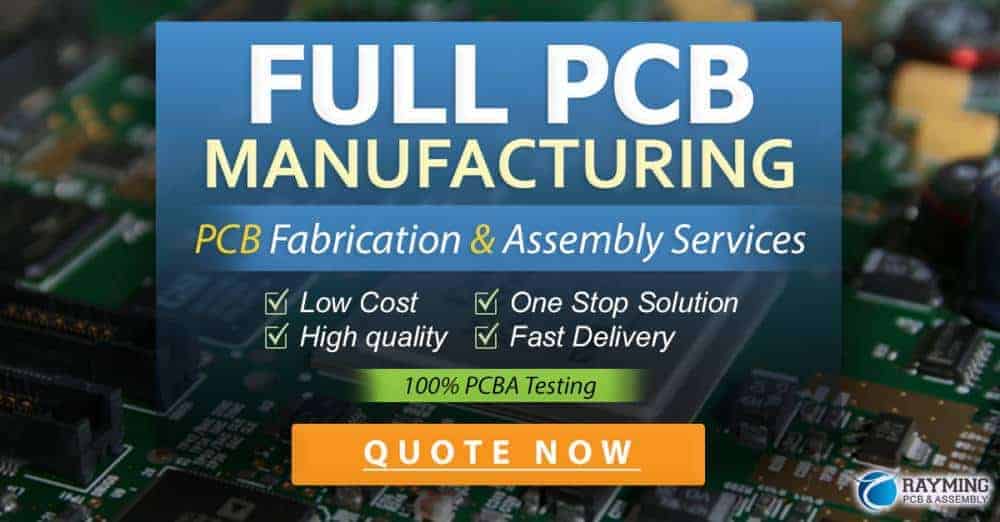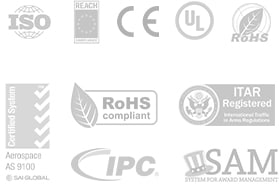PCB manufacturing services have become increasingly popular in recent years due to the growing demand for electronic devices. PCBs, or printed circuit boards, are an essential component of most electronic devices, including smartphones, computers, and medical equipment. PCB manufacturing services provide a convenient and efficient way to produce high-quality PCBs that meet the unique needs of different industries.
One of the key advantages of using a PCB manufacturing service is the ability to produce high-quality PCBs at a lower cost than traditional manufacturing methods. PCB manufacturing services use advanced technology and automated processes to produce PCBs quickly and efficiently, reducing the cost of production. Additionally, PCB manufacturing services can produce PCBs in large quantities, which is essential for industries that require high-volume production.
Another advantage of using a PCB manufacturing service is the ability to customize PCBs to meet specific requirements. PCB manufacturing services offer a wide range of customization options, including size, shape, and material. This allows industries to create PCBs that are tailored to their unique needs, ensuring optimal performance and reliability.

PCB Manufacturing Services Overview
What is PCB Manufacturing Service?
PCB (Printed Circuit Board) manufacturing service is a process of producing printed circuit boards that are used in various electronic devices. PCB manufacturing services involve designing, prototyping, and manufacturing PCBs according to the specific requirements of the customer. The process includes several steps such as drilling, plating, etching, and soldering.
Why Use PCB Manufacturing Services?
PCB manufacturing services offer several benefits to customers who need PCBs for their electronic devices. Some of the benefits include:
- Customization: PCB manufacturing services offer customized PCBs that meet the specific requirements of the customer.
- Cost-effective: PCB manufacturing services offer cost-effective solutions for producing high-quality PCBs.
- Time-saving: PCB manufacturing services offer fast turnaround times, which saves time for the customer.
- Quality: PCB manufacturing services ensure high-quality PCBs that meet industry standards.
Types of PCB Manufacturing Services
There are several types of PCB manufacturing services available in the market. Some of the popular types include:
- Prototype PCB manufacturing services: These services are used to create a prototype PCB to test the design before mass production.
- Low volume PCB manufacturing services: These services are used to produce small quantities of PCBs.
- High volume PCB manufacturing services: These services are used to produce large quantities of PCBs.
- Turnkey PCB manufacturing services: These services offer end-to-end solutions, from design to manufacturing, for customers who need a complete PCB solution.
In conclusion, PCB manufacturing services offer customized, cost-effective, and high-quality solutions for producing PCBs that meet the specific requirements of the customer. There are several types of PCB manufacturing services available in the market, and customers can choose the one that best suits their needs.
PCB Manufacturing Process

Designing the PCB Layout
The first step in the PCB manufacturing process is designing the PCB layout. This involves creating a schematic diagram of the circuit and then laying out the components and traces on a PCB design software. The software allows engineers to check for errors and ensure that the design is manufacturable.
Printing the PCB Design
Once the PCB layout is complete, the design is printed onto a special film using a laser printer or plotter. The film is then used to create a mask that will be used to etch the copper off the board.
Etching the PCB
The next step is to etch the PCB. The board is placed in a chemical bath that removes the copper from the areas not covered by the mask. This leaves behind the copper traces that will be used to connect the components.
Drilling Holes and Plating
After the PCB has been etched, the next step is to drill the holes for the components. The holes are then plated with a thin layer of copper to ensure a good electrical connection.
Solder Mask Application
The solder mask is applied to the board to protect the copper traces from oxidation and to prevent solder bridges from forming between adjacent components. The solder mask is usually green, but other colors are available.
Silkscreen Printing
Silkscreen printing is used to add text and graphics to the board. This includes component labels, logos, and other information that may be required.
Testing the PCB
The final step in the PCB manufacturing process is testing the board. This involves checking for shorts, opens, and other defects that may have occurred during the manufacturing process. The board is also tested to ensure that it meets the required specifications.
In conclusion, the PCB manufacturing process involves several steps, including designing the PCB layout, printing the design, etching the PCB, drilling holes and plating, applying the solder mask, silkscreen printing, and testing the PCB. Each step is critical to ensuring a high-quality PCB that meets the required specifications.
Factors to Consider When Choosing a PCB Manufacturing Service

When choosing a PCB manufacturing service, it is important to consider several factors to ensure that you receive high-quality PCBs that meet your requirements. Below are some of the critical factors to consider:
Quality and Reliability
The quality and reliability of PCBs are crucial factors that affect the performance of electronic devices. Therefore, it is essential to choose a PCB manufacturing service that provides high-quality and reliable PCBs. Here are some factors to consider:
- The manufacturing process: A reliable PCB manufacturer should have a well-defined and documented manufacturing process that ensures the quality and reliability of PCBs.
- Quality control: The manufacturer should have a robust quality control system that ensures that all PCBs are thoroughly tested before delivery.
- Materials: The manufacturer should use high-quality materials that meet industry standards and specifications.
- Certifications: Look for a manufacturer that has certifications such as ISO 9001, ISO 13485, and UL to ensure that they meet industry standards.
Turnaround Time and Delivery
The turnaround time and delivery of PCBs are crucial factors to consider when choosing a PCB manufacturing service. Here are some factors to consider:
- Lead time: Choose a manufacturer that can deliver PCBs within the required lead time.
- Shipping options: Look for a manufacturer that offers various shipping options to ensure that you receive your PCBs on time.
- Delivery reliability: Choose a manufacturer that has a good track record of delivering PCBs on time.
Pricing and Cost
Pricing and cost are essential factors to consider when choosing a PCB manufacturing service. Here are some factors to consider:
- Price: Choose a manufacturer that offers competitive pricing without compromising on quality.
- Hidden costs: Look for a manufacturer that is transparent about their pricing and does not have hidden costs.
- Volume discounts: Choose a manufacturer that offers volume discounts to save on costs.
Customer Support
Customer support is a crucial factor to consider when choosing a PCB manufacturing service. Here are some factors to consider:
- Communication: Choose a manufacturer that has excellent communication skills and can keep you updated on the status of your PCBs.
- Technical support: Look for a manufacturer that can provide technical support when needed.
- Responsiveness: Choose a manufacturer that is responsive to your queries and concerns.
Certifications and Standards
Certifications and standards are essential factors to consider when choosing a PCB manufacturing service. Here are some factors to consider:
- Certifications: Choose a manufacturer that has certifications such as ISO 9001, ISO 13485, and UL to ensure that they meet industry standards.
- Compliance: Look for a manufacturer that complies with industry standards such as IPC-A-600 and IPC-6012.
- Environmental compliance: Choose a manufacturer that is environmentally conscious and complies with environmental regulations such as RoHS and REACH.
In conclusion, when choosing a PCB manufacturing service, it is essential to consider factors such as quality and reliability, turnaround time and delivery, pricing and cost, customer support, certifications, and standards. By considering these factors, you can ensure that you receive high-quality PCBs that meet your requirements.

